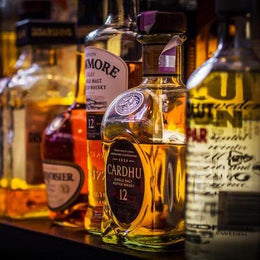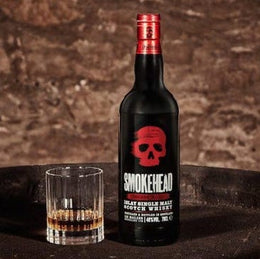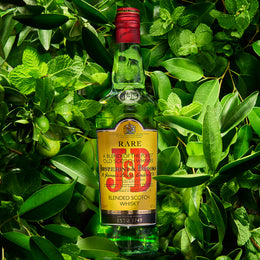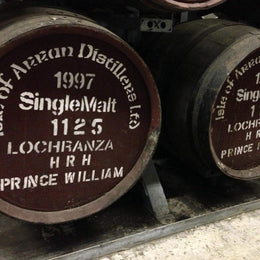The Rhythm and Booze with Felipe Schrieberg
The 4 Companies Behind 3/4 Of All Scotch Whisky Production

|
Felipe is an award-winning London-based whisky writer, tastings host, drinks competitions judge, and author. He is also a musician and co-founder of The Rhythm and Booze Project, a duo that fuses live music and whisky through gigs, tasting events and multimedia. |
Did you know that only a quarter of Scotch whisky distilleries are owned by Scottish companies? In fact, there are only a few large companies behind most of the whisky that you drink (although an increasing number of independent businesses own small distilleries).
Here are a few that may come as a surprise, listed in order of market share value based on 2015 figures:


Formed in 1997 from the merger of Guiness and Grand Metropolitan, the company that owns Guinness beer and Smirnoff vodka also controls the most Scotch whisky distilleries in the world. That Diageo is the biggest player in Scotch whisky is not really a secret, especially as it's also behind one of the world’s best known whisky brands: the Johnnie Walker blends. It's responsible for more than one-third of the total whisky produced in Scotland. There's significant quality within the quantity, though. Some of its distilleries include the superb Lagavulin, Mortlach, Talisker, and many many others.
Market share: 36%

After Diageo, Pernod Ricard of France own the most Scotch distilleries thanks to their purchase of American company Seagram’s distilled beverages division as holdings of that enormous company were being sold off in 2000 - including all the distilleries owned by Chivas Brothers. In fact, between them, Diageo and Pernod Ricard control 55% of the Scotch Whisky market. Pernod Ricard owns quite a few ubiquitous alcohol products such as Jacob’s Creek wine, Absolut vodka, and Havana Club rum. Some of their whiskies include Glenlivet, Aberlour, the Chivas Regal blended whiskies, and the Jamesons Irish whiskey giant as well.
Market share: 19%

The only independent, Scottish and family-owned company on this list, William Grant and Sons have been around since 1887. It's the distiller and entrepreneur William Grant who established the world’s first distillery dedicated to producing single-malt whisky, Glenfiddich, which is now the best-selling single malt in the world. Beyond Glenfiddich, the company also own a few other Scotch (as well as gin, vodka, and American whiskey) distilleries. These are Balvenie and the grain distillery Girvan, and the newer distilleries Kininvie and Ailsa Bay. However, it's also dipped into the blended whisky market, with products such as Grant’s, Monkey Shoulder, and others.
Market Share: 7%

You may have heard of the white rum, but Bacardi became a heftier Scotch whisky player in 1998 when it purchased John Dewar and Sons from Diageo. It now owns five distilleries including Aberfeldy and Royal Brackla, and a range of blended malts as well.
Market Share: 6%
Other players in the whisky industry
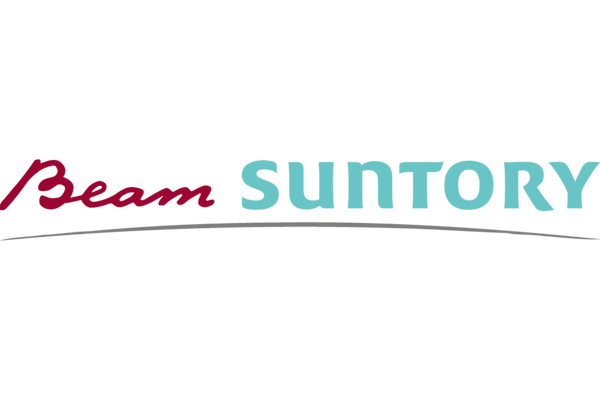
Beginning with humble origins in 1899, when Shinjiro Torii began to produce and sell wine in Japan, his company then built the Yamazaki distillery in 1924 and has since grown into one of the world’s largest drinks companies. Renamed as Suntory in 1963, its empire was further expanded when it bought Jim Beam in 2014. It produces a lot of whisk(e)y around the world. Its range of global production includes Japanese (Hakushu, Yamazaki), Canadian (Canadian Club), Ireland (Kilbeggan), and American (Jim Beam, Knob Creek, Maker’s Mark) whiskies. It also produces Scotch, with a portfolio consisting of Islay malts Bowmore and Laphroaig, as well as the distilleries of Ardmore, Glen Garioch, and Auchentoshan. You may have also encountered its blended Scotch brand Teacher’s.
Market share: 3%

Brown Forman is one of the largest American companies in the spirit and wine business. If you’ve not heard the name, you’ve seen its products. It owns Jack Daniels and Woodford Reserve whiskeys, Finlandia vodka, Herradura tequila, and much more. It's recently stepped into the Scotch Whisky industry by acquiring the BenRiach Distillery Company for £281 million. As a result, it now owns the Ben Riach, Glen Dronach, and Glenglassaugh distilleries as well.
Market share: <0.5%

It’s true! It doesn't just do purses, you know. Moet Hennessy Louis Vuitton owns two well-known Scotch distilleries, namely Glenmorangie and Ardbeg, both delicious top-level whiskies that produce only single malt Scotch (in 2014, Glenmorangie discontinued the delicious Bailie Nichol Jarvie blend because it was getting too popular and the firm wanted to use its malt for other products). It would make sense that LVMH would dip into the whisky market given it's behind most luxury products that you can think of, including all kinds of drink brands, particularly champagne, wine, and cognac.
Market share: 0.5%
By Felipe Schrieberg
Felipe is a London-based whisky writer, musician, tastings host, drinks competitions judge, and author. He writes for internationally renowned publications such as Forbes, Whisky Magazine and The Whiskey Wash. He has been awarded the Icons of Whisky Communicator of the Year award at Whisky Magazine's 2022 World Whiskies Awards.
He is the co-founder of The Rhythm and Booze Project, a duo fusing live music and whisky through gigs, tasting events, and multimedia. His past projects encompass performances at the Edinburgh Fringe of the band's own show Two Guys, Three Drams which combined live blues with whisky tasting, and building the world's first bass drum made from an entire Scotch whisky cask with a barrel of Lagavulin.
He is also a judge for the World Whiskies Awards and The Independent Bottlers Challenge. Through his online tastings hosted at The Virtual Whisky Masterclass, he has welcomed over 3,000 guests across 250+ tasting events.
His first book, London Cocktails, is now available worldwide. Follow him on Twitter/Instagram @schriebergfr, or at www.felipeschrieberg.com



